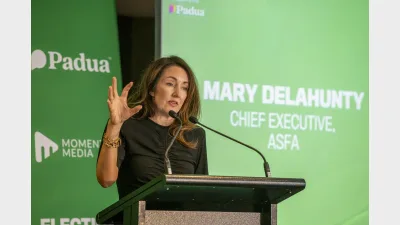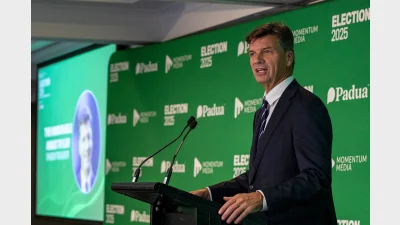Do Australians trust the government with super tax matters?



Australians “overwhelmingly distrust” the Albanese government on superannuation taxes, and are on the fence regarding the opposition, the Financial Services Council (FSC) has revealed.
Labor’s perseverance at passing its new tax on superannuation savings has convinced voters that it is likely to implement further, unannounced taxes if it is re-elected later this year, a national poll commissioned by the FSC has found.
Specifically, when asked whether the Labor Party was likely to introduce further tax changes on superannuation if they are re-elected, a net positive 46 responded in the affirmative.
The distrust in Labor’s super policy increased from mid to end-January – a period during which Labor seesawed on the $3 million super tax bill, scrapping it and reintroducing it to the Senate debate schedule.
“Australians do not trust politicians with their superannuation, but are particularly unnerved by the government’s renewed push to increase taxes on their retirement savings in the final weeks of this Parliament,” Blake Briggs, FSC chief executive, commented.
“Labor’s perseverance in raising taxes is eroding Australians’ trust in the government on the eve of the federal election.”
Breaking down its findings, the FSC said as many as 73 per cent of Australians believe it is somewhat or very likely Labor will introduce further tax changes to super if it is elected in the next federal election, with only 27 per cent thinking it is unlikely.
Turning to the opposition, it appears to have benefited from its hardline opposition to the $3 million super tax bill. Namely, according to the poll’s results, some 39 per cent of respondents trust the Liberal Party and 35 per cent distrust its stance on super taxes.
Over the past couple of weeks, the Treasurer has renewed a push to convince the Senate to pass the government’s tax on high super balances in an effort to see this wrapped up in the final weeks of this parliamentary term.
The bill, scheduled to hit the Senate on 6 February, was scrapped on the morning of the debate, indicating at the time that the government did not have the numbers to ensure its passage. It is, however, back on the schedule for 13 February.
Much of the financial services industry has spoken out in opposition of the bill, with the FSC’s Briggs calling for the bill’s withdrawal in favour of an economy-wide and evidence-based tax review after the next election.
“The government’s superannuation tax breaches fundamental tax policy principles, by taxing unrealised gains, and the incidence of the tax will have the greatest impact on young Australians as a result of the deliberate decision not to index the $3 million threshold,” Briggs said.
“It is disingenuous to say this tax targets older and wealthier Australians when in reality it targets younger, middle-income Australians, designed to establish what is known as a ‘structural saving’ in the budget that will be impossible for future governments to unwind.”
The Coalition has fiercely opposed the bill, while also putting the spotlight on Labor’s pre-election promises not to touch superannuation settings.
Namely, in the lead-up to the 2022 election, both Anthony Albanese and Stephen Jones promised not to tinker with super, a promise they retracted less than a year after assuming government.
Recommended for you
Aware Super has made a $1.6 billion investment in a 99-hectare industrial precinct in Melbourne’s North which, the fund clarified, also houses the nation’s first privately funded open-access intermodal freight terminal.
ASFA has affirmed its commitment to safeguarding Australia’s retirement savings as cyber activity becomes an increasing challenge for the financial services sector.
The shadow treasurer is not happy with the performance of some within the super sector, telling an event in Sydney on Thursday that some funds are obsessed with funds under management, above all else.
As the Australian financial landscape faces increasing scrutiny from regulators, superannuation fund leaders are doubling down on their support for private markets, arguing these investments are not just necessary but critical for long-term financial stability.












